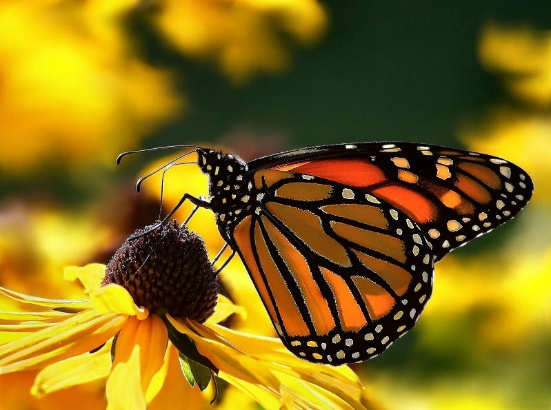Help Protect the Monarch Butterfly
The monarch butterfly is a seasonal delight that has just returned to our area for their annual visit. There are several threats to monarchs but there are also several ways that you can help. The population of monarch butterflies has decreased by about 90% over the last few decades. Monarchs are dependent on the milkweed plant for survival. It is the only plant that their caterpillars can eat before transforming into butterflies. Unfortunately many people view milkweed as an undesirable plant and take steps to remove it from the landscape. As we develop more land and improve in our ability to control “undesirable” growth on residential and agricultural lands the monarch is at risk. Below are some practical ways to help the monarch butterfly. We encourage you to do what you can to help this amazing creature!
Plant milkweed– Native milkweed can be purchased commercially or you can harvest and plant seeds from milkweed pods following the departure of the monarchs in late fall. Not only will you gain satisfaction from the knowledge that you have helped this threatened animal but you will also attract monarchs to further enjoy. As an added bonus, the milkweed flower is beautiful and smells incredible!
Protect grasslands– More than 90% of our native grassland have already been converted for cropland and development. Monarchs, other butterflies and pollinators need these vital areas. Help spread the word about this threat and protect the native grasslands in your area.
Don’t use pesticides– Insecticides kill monarch butterflies. Avoid using them whenever possible. Herbicides can kill milkweed. Try to avoid applications where milkweed and monarchs are present. Milkweed can often be found on hedgerows or edges of fields. Protect these areas whenever possible and consider planting milkweed rotationally to offset areas being used for other purposes.
Provide Nectar plants– When planning a new garden try to include some late flowering plants to provide nectar for migrating adult butterflies. Other pollinators are active from spring to fall so planning your garden so that something is always in bloom will help insects while also being pleasing to your eyes!
Spread the word– Let neighbors, friends, classmates and colleagues know what they can do to help. Consider writing to politicians individually or in groups. Ohio’s citizens successfully encouraged their government to plant milkweed corridors on state highways. This has helped monarchs to migrate while saving the state millions of dollars in mowing costs. This solution was a win for the people who advocated for it, for the state and for wildlife. Do you have a solution for a problem that benefits everyone? If so, share it! The solutions to many real world problems are probably floating around in your head right now just waiting for you to focus on them, to raise your voice and share them with others.



